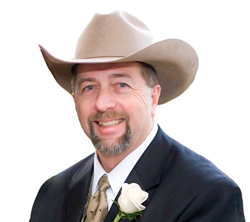What's new in Exploration
“Judge voids ConocoPhillips Alaska project approved by Trump … approval of a ConocoPhillips oil field project on Alaska’s North Slope was rescinded by a federal judge, who said it failed to adequately protect polar bears and didn’t properly consider the effects on climate change.” World Oil post, Aug 20, 2021. Just how many law schools teach polar bear habitat and climate equations? Hmm?
It turns out, the jurist, U.S. District Judge Sharon Gleason of the District of Alaska, is a native New Yorker, educated at Washington University in St. Louis (BA) and the University of California, Davis (JD). And she’s an Obama appointee. Nope, don’t see the science training. But she was an intern for environmental activists, “Conservation Law Foundation,” helping to kill the Seabrook Nuclear Power Station in New Hampshire. Another example of anything Trump being tossed by Biden. Ask the Afghans how Biden’s leadership is working out.
Personnel moves run amuck. ExxonMobil announced that it will use an ancient 10%-per-year personnel reduction rule. A disaster of HR thinking. This idea probably first started when Roman Emperor Nero Claudius Caesar Augustus Germanicus implemented the concept among his loyal republic followers to reduce possible defection to alternate beliefs in deity.
I know few better HR theories that will alienate employees, turn them against each other, destroy a successful company culture, and cause the top performers to run in exodus, asap. I saw this at Conoco during the Dupont years. The so-called bottom 10% were whacked, no matter their ratings. After a couple of years, even the Mary Poppins/Sam Waltons get the ax.
In the mid-1990s, Marathon did the same with a single open-meeting announcement from an exploration V.P. “No raises, 10% layoff in the next two months, then again over the next several years. I have a stack of resumes on my desk, so if you question this, don’t let the door hit you in the as.. on the way out”—very personal communication, 1994. So, 40% of the top performers ran to the exits. Anadarko benefited greatly with new staff, new ideas, and a lot of knowledge of future reservoirs. My big mouth was sent to Calgary.
The “G” in ESG. Nigeria’s court of appeals [new group in charge] overturned a 2019 ruling [old group in charge] that granted Shell the right to renew its operating license for the Oil Mineral Lease 11 field. Those rights [$$$] magically transferred to state-owned Nigerian National Petroleum. No wonder Shell continues to seek non-oil energy, “ahem.”
Exploration is not under a mere social attack. Companies exist to bring economic growth to their owners within legal boundaries, including common sense environmental controls. Most treat employees better than, and above, the U.S. Constitution’s 13th Amendment minimums. Surviving companies provide value in whatever they sell, to whomever. History shows that when leaders believe otherwise, attempting to accommodate discomfort of anyone and everyone, they satisfy no one, resulting in unpleasant consequences.
That bright light approaching on the political horizon is not hope but more of Fahrenheit 451 coming your way [per Captain Beatty, 1953]. The U.S. is asking the Saudis to pump more oil. Is this because Biden, et al, are enjoying killing U.S. oil production, receiving kickbacks, or creating a smoke screen around massive governmental printing of money?
RPSEA follow up: Deflagration to detonation (DDT). The causes of any offshore rig blowing up are a serious concern to exploration. More than a Macondo reaction, the industry has been researching the regulatory environment, on its own, for some time, understanding that North Sea safety rules are not enough.
I managed a RPSEA-funded DDT project, testing explosion prevention on full-scale rig models. Not one of our partners wanted to support the idea, until I started to document negative votes during a project selection meeting. Later, when shown that we unexpectedly blew up (Fig. 1) the full-scale model—twice—by implementing only state-of-the-art regulatory safety parameters, both DOE and the oil companies jumped on with generous support. A decent summary of the report can be found here: https://oaktrust.library.tamu.edu/handle/1969.1/193691 Or, it can be found here: http://pscmembers.tamu.edu/wp-content/uploads/2016/Papers/005_Scott%20Davis.pdf. Results have influenced dry tree vs. wet tree decisions, and accelerated A.I. applications to reduce human exposure to unexpected events (e.g. Schlumberger ADD, autonomous directional drilling).
SEG, AAPG and now SPE are admitting discussions to merge. So, what are the points of contention besides who’s in charge and who gets the majority of money? The “A” in AAPG has long since been given over to European universities, which have little interest in actual petroleum and want more on hydrogen sources. The “E” in SEG has been declining for years at developing geophysical tools for exploration of new complex areas or ultra-deep water [UDW]. Since the UDW is the current prime concern of SPE, then just what will remain of “P” after the merger? I still vote “yes” to the merger. Interest in petroleum tech must advance and have at least one champion.

- Executive viewpoint: TRRC opinion: Special interest groups are killing jobs to save their own (February 2024)
- Management issues: New U.S. House Speaker is strong supporter of oil and gas industry (December 2023)
- Oil and gas in the Capitals (October 2023)
- Embracing the opportunity of ESG to deliver a sustainable future (September 2023)
- Executive viewpoint (April 2023)
- Global offshore market is on the upswing (April 2023)



